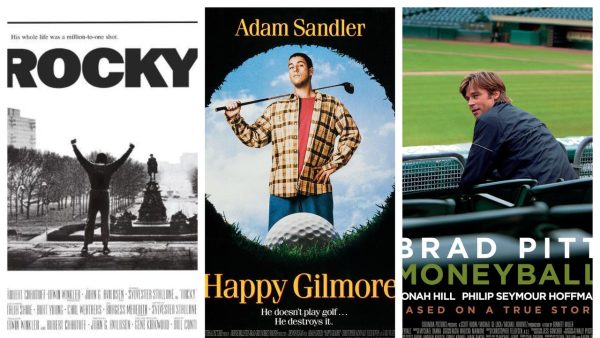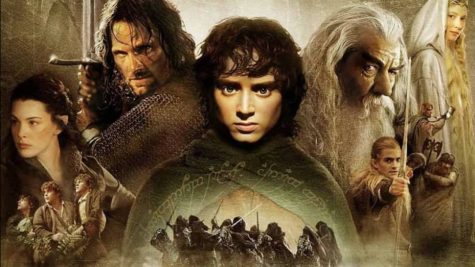“Don’t Look Up”: A Brutally Honest Review
Spoiler alert: This movie is not worth your while
It’s almost certain that you’ve heard of Netflix’s latest hit, “Don’t Look Up”, a film packed with a star-studded cast and made by the Academy-Award winner of a director, Adam McKay. But despite the promise the people working on this film created, all that the audience got to experience was a “rise of anticipation and crash of execution”, as Roger Ebert eloquently put it.
Adam McKay, in the past with his films “The Big Short” and “Vice”, has been successful with melding comedy and drama to portray a poignant story with real social and political issues. But he falls flat in “Don’t Look Up”, attempting to be insightful about every single hot button issue in the world right now, such as social media, climate change, celebrity idolization, political polarization, and on and on. He takes on such a large scope of issues that the overall message is lost and feels very out of touch.
The film was made to be a satire, but ultimately failed in doing so. Satires are typically made to ridicule and criticize people’s views in an overexaggerated manner, but “Don’t Look Up” failed to use exaggerations or any sense of parody and instead used exact issues or details happening in our present in an attempt to deliver a film with contemporary issues. And sure, in theory, that sounds like it could work as a successful satire, but instead the film feels like a rerun of life’s current events, but with more obvious and explicit handling of these issues in order to “get across” these points, totally lacking any depth at all. For example, McKay essentially just genderbent the Trump administration by using a female president instead of a male, and highlighted the same sort of corruption that he had in her character, making it an obvious recreation that just seemed cheap as something we’ve all already seen in real life. By attempting to laugh at these issues, it gave off the effect that as people they are above the issues that are occurring in our reality, and almost disregard the truth by laughing at what is so poignant in our time.
To this effect, the use of so many entertainment stars only added to the disconnect as they attack problems with Hollywood and the media. McKay tries to point out how media tends to prioritize Hollywood or modern entertainment stars over real news, but instead does the same thing with his own film, having the prestige of the actors overtake audience’s interest more so than any real message that the movie could have produced. For many, his illustrious cast was exactly what sparked any interest in the movie from people, only to ultimately be wasted.
Timothée Chalamet appeared for about 15 minutes total (if we’re being generous); Cate Blanchett’s character was wasted and underdeveloped, showing her only as a fake and cheap woman; Rob Morgan was reduced to only a sidekick for Dicaprio and Lawrence despite having the ability to be a stronger character and position-wise was just as valuable as the two; Melanie Lynskey, Dicaprio’s on-screen wife, was also wasted as nothing but a kind and loyal stay-at-home mom who Dicaprio cheated on with Blanchett only for her to take him back in the last scene with no scruples about the relationship, simply saying that she cheated on him when they were in college.
Along with most of the talented cast being wasted in their underdeveloped or mediocre characters, McKay’s female characters specifically, are portrayed as weak or more heavily criticized than any of the men. Some examples:
- Jennifer Lawrence’s Kate Dibiasky is portrayed as constantly hysterical, which works as an attempt to reference how people generally perceive women as being hysterical and overemotional compared to men, but in the film there were too many situations where she was the only one acting hysterical and all of the men watching simply saw it as something negative and an overreaction, viewing it in a disapproving manner. Her character’s boyfriend also took advantage of their relationship by breaking up with her over an article about how she was crazy and was shown as writing a book about their relationship.
- Meryl Streep’s Madame President is used as the butt of the joke many times in a sexist manner, making her dumb, typical presidential vanity instead play directly into gender stereotypes.
- Cate Blanchett’s Brie Evantee, the morning show news anchor, we were told explicitly that she had multiple master degrees and could speak several languages and then was immediately portrayed as someone who is selfish and only looked for pleasure in life, ultimately making her life seem worthless or purely as taking advantage of others. This is not done for her partner, the male anchor, but only for her. They built her up in a few minutes of dialogue as an intelligent woman only to take her down and show that it has all been lost by her desires for money and fame and whatnot, but never do so for her male counterpart.
- And then we had Ariana Grande as the pop star, Riley Bina. First of all, her character was entirely unnecessary for the general plot of the film, and what we did see did not seem like she was playing a character but simply just an extension of herself. She played a pop star in the movie whose fame mainly centered around her relationship drama with Kid Cudi’s character, seemingly hoping to be a commentary on society’s fixation and idolization with celebrities’ lives, but was extremely underdeveloped and made no ultimate impact on the story itself. The film also gave her character more screen time than Kid Cudi’s character, and made her out to be more of a fool than his character, as she would describe her new single to be raising money for “the manatees” and conservation services for them, but was clearly only done as a PR mission to make her seem more caring. These two characters also performed a full (and badly written song with lyrics that repeated the movie’s main themes for the audience for the millionth time) in the middle of the movie as an “End of the World concert”, a scene which had no emotional impact whatsoever. The song is now on all possible streaming services, assuming itself as one of the most painstakingly obvious cash grabs to be seen in a film.
McKay’s editing and production was similarly weak, and did not help with the overall progression of the movie. In the first five minutes of the movie, the two main characters discover the comet and are told that they will hear from NASA’s Planetary Defense Coordination Office (PDCO), a scene which is then accompanied by large yellow text describing what the acronym stands for and then stating that “yes, it is a real department”. This sort of sarcastic text-on-screen work has been utilized by McKay in his past films, but this first scene is the only scene in its entire 138 minutes that uses this stylistic choice, and simply just adds nothing to this film and personally bothers me as not being a continuous choice, instead feeling like a useless afterthought. (I do recognize that I may be nitpicking in this one aspect, but it was a slight issue I wanted to share). Its social media montages also felt cheap and overdone and seemed only to have been used to emphasize the celebrity issues which still remained underdeveloped.
This movie was made for the people who actually enjoy SNL, and if that doesn’t explain the film’s weak sense of humor, then I don’t know what does. And yes, I have probably already alienated many readers from that statement alone, but can you genuinely watch SNL skits not for the celebrities but for the actual content, and tell me that it’s “laugh-out-loud” good humor quality? McKay’s film was lacking in so many aspects, and where it might not have lacked, it simply repeated itself, transforming itself into a movie built on redundancy, leaving any of the issues’ impacts promptly behind.
The movie had so much potential, from its cast to the story’s potential impact, and its overall fall was really the most angering part of the movie.







